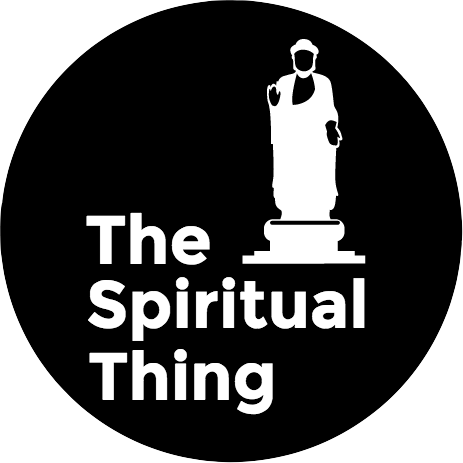Do you ever feel like there’s a knot in your stomach that just won’t go away? Or maybe you find yourself constantly worrying about things, big or small, even when everything seems fine on the surface? If these feelings resonate with you, you’re not alone. Welcome to the world of anxiety.
Understanding anxiety is crucial because it affects millions of people worldwide, and yet, it’s often misunderstood. In this blog, we’ll delve into the depths of anxiety, exploring its symptoms, triggers, treatments, and how to support yourself or a loved one through it.
Anxiety Symptoms: Recognizing the Red Flags
Anxiety doesn’t just manifest as feeling a little nervous before a big event. It can show up in various forms, including physical symptoms like:
- Rapid heartbeat
- Sweating
- Trembling
- Shortness of breath
- Dizziness
- Upset stomach
- Muscle tension
On the mental and emotional front, anxiety can cause:
- Excessive worrying
- Racing thoughts
- Irritability
- Difficulty concentrating
- Fear of losing control
- Avoidance behaviors
If you’re experiencing these symptoms frequently or intensely, it might be time to seek help.
Understanding Anxiety Disorders: More Than Just Nerves
Anxiety isn’t a one-size-fits-all condition. It encompasses a range of disorders, including:
- Generalized Anxiety Disorder (GAD): Persistent, excessive worrying about various aspects of life.
- Panic Disorder: Sudden and intense episodes of fear, accompanied by physical symptoms like chest pain and shortness of breath.
- Social Anxiety Disorder: Fear of social situations and being judged by others.
- Phobias: Irrational fears of specific objects or situations, such as heights or spiders.
- Obsessive-Compulsive Disorder (OCD): Intrusive thoughts (obsessions) and repetitive behaviors (compulsions) to alleviate anxiety.
- Post-Traumatic Stress Disorder (PTSD): Anxiety and flashbacks triggered by a traumatic event.
Understanding the specific type of anxiety you’re dealing with is the first step toward effective management.
Understanding Anxiety Triggers: What Sets It Off?
Anxiety triggers can be as unique as the individuals experiencing them. Common triggers include:
- Stressful life events like job loss or relationship problems.
- Trauma or abuse.
- Genetics and family history.
- Personality traits like perfectionism or pessimism.
- Substance abuse or withdrawal.
- Certain medical conditions.
- Side effects of medications.
Identifying your triggers can empower you to anticipate and manage your anxiety more effectively.
Understanding How Anxiety Works: The Science Behind the Stress
Anxiety isn’t just a result of overthinking or being too sensitive. It’s a complex interplay of biological, psychological, and environmental factors. Here’s a simplified breakdown:
- Brain Chemistry: Imbalances in neurotransmitters like serotonin and dopamine can contribute to anxiety.
- Genetics: A family history of anxiety disorders can increase your risk.
- Personality: Certain personality traits, such as being highly neurotic or introverted, can predispose you to anxiety.
- Life Experiences: Traumatic events or chronic stress can wire your brain to be more susceptible to anxiety.
- Environmental Factors: Your upbringing, socio-economic status, and cultural influences can shape how you perceive and respond to stressors.
Understanding the underlying mechanisms of anxiety can help reduce stigma and encourage more compassionate self-care.
How to Deal with Anxiety: Practical Strategies for Coping
Now that we’ve explored the ins and outs of anxiety, let’s talk about how to manage it. Here are some evidence-based strategies:
- Mindfulness and Relaxation Techniques: Practice deep breathing, meditation, or progressive muscle relaxation to calm your mind and body.
- Healthy Lifestyle Changes: Prioritize regular exercise, balanced nutrition, adequate sleep, and limiting caffeine and alcohol intake.
- Therapy and Counseling: Cognitive-behavioral therapy (CBT), exposure therapy, and other forms of psychotherapy can help you challenge negative thought patterns and develop coping skills.
- Medication: In some cases, medications like antidepressants or anti-anxiety drugs may be prescribed to alleviate symptoms.
- Support Network: Lean on friends, family, or support groups for understanding and encouragement.
- Self-Care Practices: Engage in activities that bring you joy and relaxation, whether it’s spending time in nature, pursuing hobbies, or pampering yourself.
Remember, managing anxiety is a journey, not a destination. Be patient with yourself, celebrate small victories, and seek professional help if needed.
Understanding Anxiety in a Loved One: How to Offer Support
If someone you care about is struggling with anxiety, your support can make a world of difference. Here’s how you can help:
- Listen Without Judgment: Offer a compassionate ear without trying to fix their problems.
- Educate Yourself: Learn about anxiety disorders to better understand what they’re going through.
- Encourage Professional Help: Suggest therapy or counseling if they’re open to it, and offer to assist them in finding resources.
- Be Patient and Empathetic: Understand that recovery takes time and setbacks are normal. Show empathy and encouragement along the way.
- Take Care of Yourself: Supporting someone with anxiety can be draining, so prioritize your own well-being too.
In Conclusion
Anxiety is a complex and multifaceted condition that affects millions of people worldwide. By understanding its symptoms, triggers, and treatment options, we can break the stigma surrounding mental health and provide better support for ourselves and others. Remember, you are not alone, and there is hope and help available. Take the first step towards healing today.
As the saying goes, “You can’t stop the waves, but you can learn to surf.” Let’s ride the waves of anxiety with courage, compassion, and resilience.

